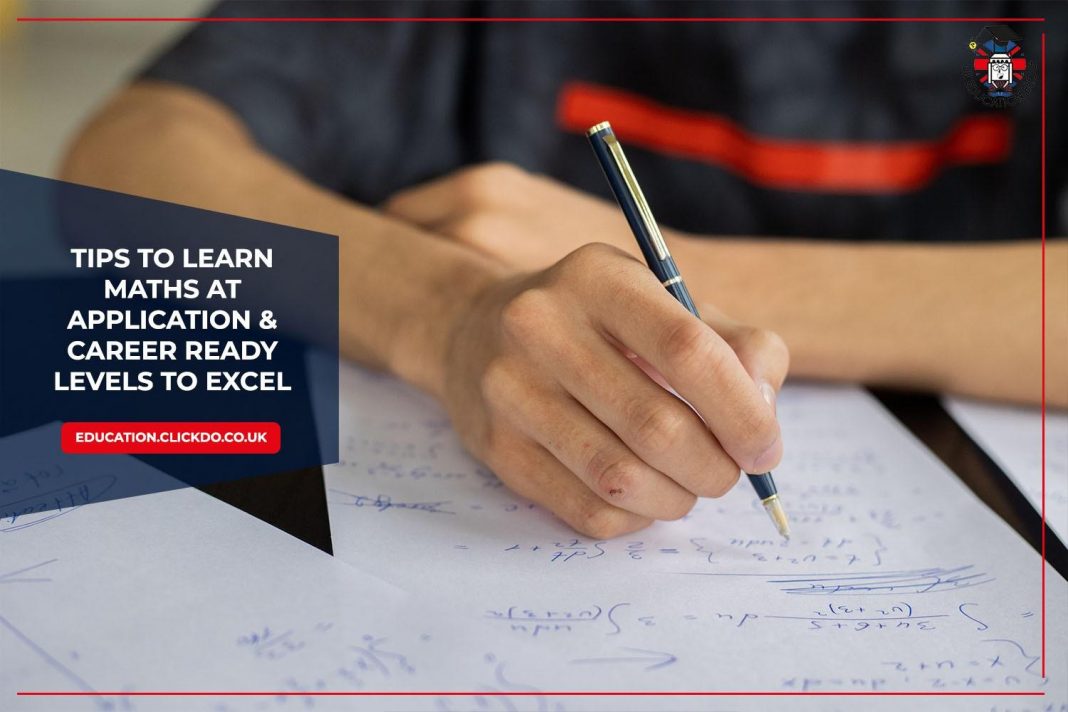According to researchers’ findings, MRI scans of young students solving mathematics problems experienced brain reactions that suggested aetiological occurrences.
These findings show that many students still face problems approaching and effectively learning mathematics despite several traditional teaching method revisions and additions of technological aid.
So, how is it that some people enjoy solving maths problems while others don’t?
Many people mention mathematics as a very interesting and favourite subject when others cannot get their head around it.
Research has hinted that there is no such thing as a maths gene or maths brain, suggesting that anyone can learn maths and be good at it with the right approach and methodology.
So, let’s look at a few mathematics expert approaches that will help you learn maths and match up with the above extremities.
1. Carefully Pick Your Field Of Study

Firstly, you must decide which branch of maths you want to start with. Suppose that on top of being a learner, you also are an enthusiast as opposed to people who are reluctant to study maths.
In such cases, it is important to understand that the right approach isn’t always to start with difficult branches that you have been wanting to learn for a long time. For instance, let’s say that you’ve only studied calculus 1, but you always wanted to leap onto algebraic topology.
Presumably, such topics can be tough to crack. You have to understand that there’s a lot of bridge to cover here before taking on topics with mathematical problems that can be difficult to solve.
Here in this example, you will need to be well-versed with abstract algebra and general topology and have a certain level of mathematical maturity to start with algebraic topology. However, this doesn’t mean you shouldn’t refrain from learning tough subjects. Just it is always recommended that you pick something that feels manageable initially unless you’re extraordinarily smart and confident about where you stand in terms of the respective topic.
2. Adopt Relevant Learning Methods

We’ve heard a lot about how traditional learning methods are unproductive for long-term mathematical applications. Most students learned what their teachers told them according to pre-set syllabi. Only later do they figure out what they want to learn further or ways to use it to their advantage. Schools aren’t known to teach students to be ready for real-world applications.
However, with today’s technological advancements and ease of communication, kids have better opportunities to adopt application-level learning using highly-rated math apps for example. Today, the average age of children getting their first mobile-phone ranges from around 12-14 years.
It increases their chances of being exposed to useful learning materials and motivates them to approach subjects in a career-oriented fashion at a very young age. For instance, many students are fascinated with the possibilities of machine learning, IoT, and how maths is key to mastering those areas of study.
3. Finding The Right Approach

While a good number of expert online maths tutors can help with choices and guidance, many undermine your current progress just to win an account. For instance, despite knowing basic calculus and algebra, they might explicitly tell you that you are not ready to learn advanced calculus for canvassing you in their course.
That’s not true. Although you might not understand everything right away, you can still try and figure out where you stand in terms of advanced topics with patience and the right guidance. Just pick a subject you want to learn and find genuine learning resources. You will gradually catch up.
Also, it is always better to manage your expectations and accept that you will not understand everything right off the bat while attempting a really advanced subject. This will ensure that you don’t feel defeated when you come across complex concepts. Rather than feeling like a failure, managing your expectations will help you constantly learn and improve.
4. Get the Right Study Books

The next thing you should do is get the right books. Although still prevalent, with an abundance of resources on the internet, the percentage of people using books has declined significantly. Also, several educational mobile applications have attractive features and interesting graphics aimed to glue users just to increase memberships and screen times.
So, it is advised that you try to find the best maths books at affordable rates for solid basics and practice. There’s nothing like the good old way of learning mathematics that will help you retain concepts. Late Paul Hammant once said he would do as many problems as possible and gather as many resources as possible when learning maths. The more resources you have, the easier it is to learn.
Takeaway
Anyone can learn maths via the latest means available if they choose these wisely. The internet is cluttered with so many different resources that make it easy for young students to get distracted. Renowned maths books will always serve as the foundation for further innovation and technological advancements. You must diligently make use of recommended online resources to supplement your mathematics learning efforts. Furthermore, you can seek guidance from registered online maths tutors. They can help you find more like-minded people to interact with and study maths together. You can also learn further through several resources available on forums, social media, and the online maths Olympiad communities.
Author Profile

- Shirley Owen is a blogger and writer who enjoys writing blogs on education, technology and general news. An avid reader, she follows all the latest news & developments to report on them through her articles.
Latest entries
 careerDecember 30, 2025Why BIM Mastery has become essential for Construction Professionals in 2025
careerDecember 30, 2025Why BIM Mastery has become essential for Construction Professionals in 2025 learningDecember 22, 2025When Co-parenting Affects School Performance – Challenges & Solutions
learningDecember 22, 2025When Co-parenting Affects School Performance – Challenges & Solutions educationDecember 11, 2025Making Education Accessible for Mobile Families that Travel
educationDecember 11, 2025Making Education Accessible for Mobile Families that Travel learningOctober 28, 20257 Daily Classroom Strategies Helping Children With Learning Differences Thrive
learningOctober 28, 20257 Daily Classroom Strategies Helping Children With Learning Differences Thrive







